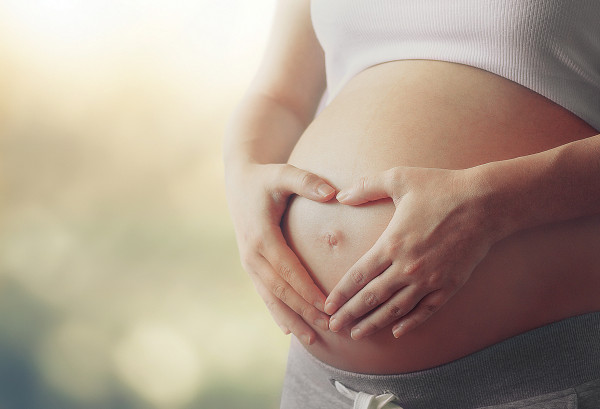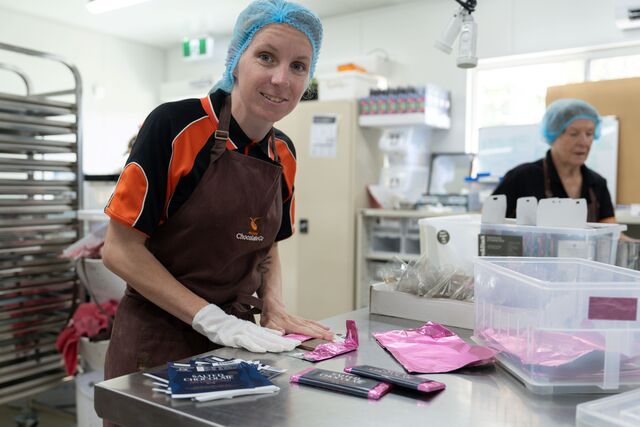Pregnancy is a miraculous and extraordinary accomplishment of the female body and its ability to facilitate the growth of new life can be greatly supported through effective nutrition. Local Nutritionist Danielle Wilcock talks about the dietary requirements of women from pre conception to post-pregnancy, offering some tips on what to eat and why.
FROM conception right through to post-pregnancy the female body endures many significant and substantial changes and just as each woman is different, likewise so is each and every pregnancy.
Therefore, it is very hard to determine one diet that can applied to all. However, there are some basic recommendations that all expectant mothers can take note of.
Eat for you, not for two!
Theres a huge misconception that during pregnancy, mothers must eat more food because they’re no longer ‘eating for one’. This is grossly incorrect and with regards to energy requirements, there’s only a need to increase energy (kilojoules) consumption after the second trimester. Excess weight gain can increase the chances of gestational diabetes, while putting the baby at greater risk of developing a metabolic syndrome and becoming overweight later in life.
Weight gain during pregnancy largely depends on the weight of the mother prior to conception. Mothers carrying too much weight prior should aim to gain less than those who were at a healthy weight.
Dieting and restriction of foods is never recommended during pregnancy as this could severely hinder the growth of development of the foetus. If weight gain is happening too quickly, it would be recommended to look at the foods being consumed. Opt for foods that are nutrient dense, not energy dense. Think bang for your buck!
Bowel Regularity
During pregnancy it is not unusual for this constipation to occur. Some mothers experience frequent bouts of constipation and it can be extremely uncomfortable. Fibre is essential to the health of our digestive systems and promotes the growth of friendly gut bacteria while encouraging bowel regularity. Dietary fibre also aids in the removal of cholesterol while helping to maintain stable blood glucose levels.
Australian dietary recommendations suggest adults consume 30g of fibre daily. Food sources include wholemeal/wholegrains, vegetables (cabbage, onions and asparagus – great sources of probiotics), oats, apples, barley, legumes.
Folate
Folate is from the B family of Vitamins and is crucial for the development of the baby’s neural tube (spina bifida) and spinal cord. To reduce risk of neural and spinal cord defects, it’s essential that requirements for folate are met during the first three months of pregnancy.
Doctors typically recommend a supplement of 400 micrograms daily, but there’s folate rich foods that can be eaten. These include leafy green vegetables, avocados, nuts (almonds, walnuts and hazelnuts), anything derived from yeast extract (Vegemite and Marmite) as well as oranges.
Brain Food.
Omega 3 fats are essential for brain, eye and nervous tissue health. They derive from fish, seafood, lean meats and eggs and contribute hugely to the development of a baby brain during pregnancy.
Two to three portions of fish per week are recommended with oily fish, particularly Salmon as they’re an acute source of Omega3 fats.
Mothers must be cautious when it comes to mercury levels in fish and seafood. Mercury can be potentially toxic to the unborn child so it’s recommended to avoid fish with high mercury content. Examples are swordfish, shark, marlin and deep sea perch.
Iodine is also a significant contributor to brain development and is particularly crucial during the first few years of a child’s life. Iodine deficiency can lead to learning and developmental difficulties, so obtaining the recommended intakes is wise. 150mg daily during pregnancy and whilst breastfeeding is ideal and supplementation is acceptable alongside a healthy balanced diet.
Alcohol
Alcohol consumption during pregnancy has been linked to physical and learning disabilities, therefore is not recommended to consume at all throughout pregnancy. There are no known safe intakes while carrying a child so to err on the side of caution, removing alcohol consumption entirely during pregnancy is preferable.
















